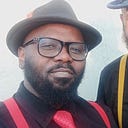Just 3 Hours a Day — The Effective Use of Time to Achieve Great Things
Lessons from nineteenth century thinkers
When Asimov was asked what he enjoyed doing most in his spare time, he joked:
“Whenever I have endured or accomplished some difficult task, such as watching television, going out socially or sleeping, I always look forward to rewarding myself with the small pleasure of getting back to my typewriter and writing something.”
Cicero added: “What others give to public shows and entertainments, nay, even to mental and bodily rest, I give to the study of philosophy.”
The present time is the raw material out of which all dreams are crafted. The athlete, the musician, the actor and the artist all share one common trait: That of guarding their spare moments well and dedicating them to effective use.
When Henry Ford was asked what he believed was the one thing that separated effective people from the ordinary, his response was that it was their effective use of time that made the difference. “It has been my observation,” he said, “that most people get ahead during the time that others waste.”
Time Is The Most Precious Commodity
“I have been wondering how Ned contrived to monopolize all the talents of the family,” asked a brother — of another brother — who had risen to great success in life. “But then I remember; when we were at play, he was always at work.”
Spare moments guarded well are like uncut diamonds, says Waldo Emerson: “Discard them and their value will never be known. Improve them and they will become the brightest gems in a useful life.” He who employs his time effectively always succeeds.
Faraday employed his spare moments to practical use by working longer and studying harder than any of his colleagues, eventually climbing to the rank of the most eminent of scientists. A friend once wrote to him asking how his experiments were coming along and he replied that he had been hard at it, but added:
“Time is all I require. Oh, that I could purchase at a cheap rate some of our modern gentlemen’s spare hours — nay, days!”
Time is a most precious commodity. “Lost wealth may be replaced by hard work, lost knowledge by hard study, lost health by good medicine, but lost time is gone forever,” writes Smiles.
Just 3 Hours a Day
A colleague asked Edward Bulwer, who — although employed in the same occupation as he — managed to publish somewhat between sixty and seventy volumes of books in the time period, some upon subjects requiring a great deal of research:
“When do you get time to write all your books?” he asked. “How on earth do you contrive to do so much work?”
“I shall surprise you by the answer,” replied Bulwer with a exultant snap of the fingers:
“By never doing too much at a time. A man to get through work well must not overwork himself; or, if he does too much today, the reaction of fatigue will come, and he will be obliged to do too little tomorrow.”
When asked how many hours a day he devoted to study and writing, he replied:
“Not more than three hours a day. But during these three hours, I have given my whole attention to what I was about.”
Read more in my new book! The Trials And Triumphs of Hyperachievers
